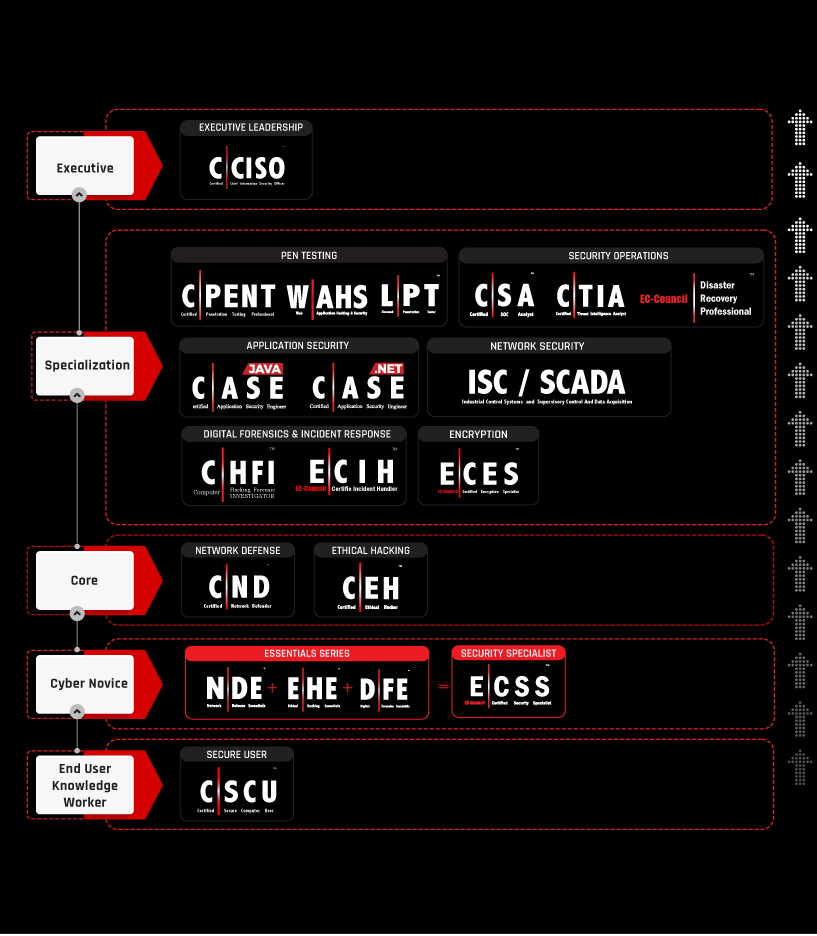Certified Chief Information Security Officer v3
Road Maps

Target Audience for Certified Chief Information Security Officer( CCISO )
The Certified Chief Information Security Officer (CCISO) course is designed for senior-level information security executives.
- Current Chief Information Security Officers (CISOs)
- Vice Presidents of Information Security / Cybersecurity
- Information Security Directors / Managers
- Information Technology Directors / Managers responsible for IT security
- Chief Information Officers (CIOs) involved in information security governance
- Senior IT professionals aspiring to be CISOs
- Information Security Consultants and Advisors
- Senior Information Security Auditors
- Information Security Analysts / Engineers with management aspirations
- IT Risk Management Professionals
- IT Governance Professionals
- Compliance Officers dealing with information security requirements
- IT/Information Security Leaders in charge of strategic planning
- Information Security Incident Responders with senior management roles
- Network Architects and Planners focusing on security infrastructure
- Information Security Policy Makers
- Senior System and Network Administrators
- Information Security Training Professionals
- Senior members of IT/Information Security law enforcement agencies
- Entrepreneurs looking to gain knowledge in information security management
Learning Objectives - What you will Learn in this Certified Chief Information Security Officer( CCISO )?
Introduction to the CCISO Course Learning Outcomes:
The CCISO course is designed to equip information security leaders with the most effective and efficient strategies for defending organizational cyber environments.
Learning Objectives and Outcomes:
- Develop and manage an information security governance program aligning with organizational goals and compliance requirements.
- Understand and apply information security management and control frameworks, standards, and best practices including ISO 27000 series and FIPS.
- Design and implement a comprehensive risk management program, identifying and mitigating risks while understanding acceptable risk levels.
- Establish and maintain a disaster recovery and business continuity strategy that supports organizational resilience.
- Develop and oversee a strategic plan for information security, integrated with business objectives and financial planning.
- Manage and audit information systems controls to ensure integrity, confidentiality, and availability of information assets.
- Lead information security projects effectively, ensuring they meet organizational objectives, budget, and timelines.
- Gain proficiency in core information security competencies such as access control, network defense, and encryption technologies.
- Conduct vulnerability assessments and penetration testing to identify security weaknesses and oversee the implementation of corrective measures.
- Oversee computer forensics and incident response, ensuring proper handling of security incidents and legal compliance.
Rating
0
0
Commenting is not enabled on this course.